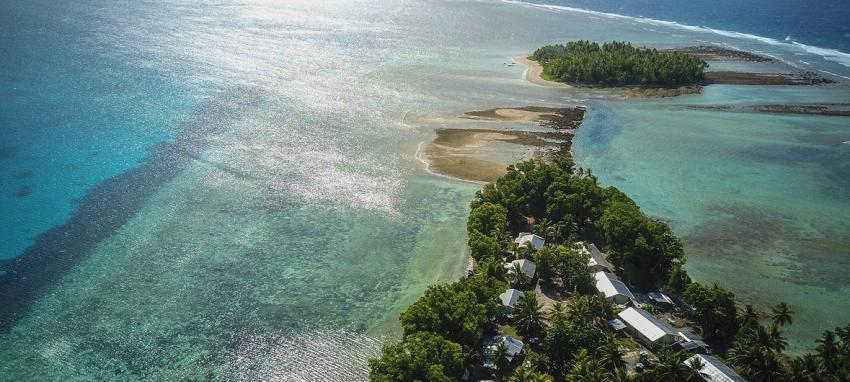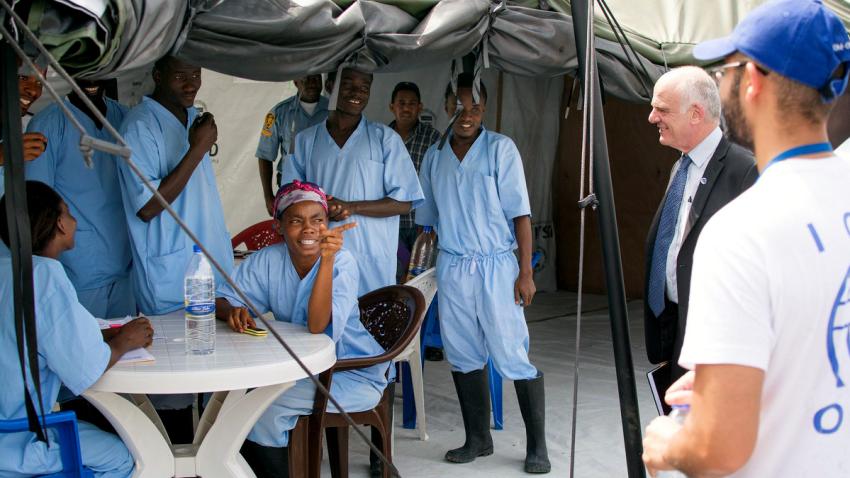“As the ultimate person-to-person sector, and one that promotes solidarity and friendship, tourism will play a key role in spreading trust more widely, with benefits traveling far beyond tourism itself.” – UNWTO chief
18 May 2020 — As COVID-19 has brought tourism to a complete standstill, the United Nations is working closely with international organizations, Governments and the private sector to support the responsible and timely recovery of the sector, on which millions of small businesses and jobs depend.
“It is imperative that we get the world moving again – once it is safe to do so,” said Zurab Pololikashvili, Secretary-General of the United Nations World Tourism Organization (UNWTO).
All 217 destinations worldwide have restrictions in place, and 72 per cent of them have placed a complete stop on international tourism, according to data collected late last month by the agency.
The global tourism decline has already taken a toll on national economies, people’s livelihoods and efforts to achieve the Sustainable Development Goals, Mr. Pololikashvili said.
Yet the sector is ideally positioned to lead the world toward recovery, serving as the vehicle to channel trust – “the new currency of our ‘new normal’”.
“As the ultimate person-to-person sector, and one that promotes solidarity and friendship, tourism will play a key role in spreading trust more widely, with benefits traveling far beyond tourism itself,” he said. “Only this way can we drive our economies back towards growth and start rebuilding our societies.”
Alongside a set of recommendations for action to mitigate the socio-economic impact of COVID, UNWTO has issued a package of guidance to Member States on three potential areas of intervention to accelerate the recovery of tourism: economic recovery, marketing and promotion, and institutional strengthening and resilience building.
European model to restart tourism

Europe is set to take the lead in a responsible and coordinated manner, offering an example for the rest of the world, Mr. Pololikashvili said.
The coordinated rolling out of new health and safety protocols for every part of the tourism value chain – including travel, accommodation, food and leisure – will make it safer to travel.
“The lifting of travel restrictions, first within nations and then across international borders, will allow the many social and economic benefits tourism brings to return not just in Europe but around the world,” he said.
The Union’s guidance aims to offer people the chance to get some well-needed rest, relaxation and fresh air. As soon as the health situation allows, people should be able to catch up with friends and family, in their own country or across borders, with all the safety and precautionary measures needed in place.
These guidelines will allow people to safely stay at hotels, camping sites, Bed & Breakfasts or other holiday accommodation establishments, eat and drink at restaurants, bars and cafés and go to beaches and other leisure outdoor areas.
Small island developing States hit hard
Small island developing States, which depend largely on tourism for their economies, have been hit hard by the global slowdown.
In a recent presentation, Alicia Bárcena, Executive Secretary of the Economic Commission for Latin America and the Caribbean (ECLAC), noted that the near total shutdown of air and cruise travel had dealt an immense blow to the region's tourism sector.

She said economies in the Caribbean are expected to shrink by 2.5 per cent in 2020, calling for measures such as access to concessional funding and debt relief for these countries.
We are glad to collaborate with this urgent appeal to support African travel and tourism. Economic and social recovery must have political and financial support to avoid the collapse of a sector that provides +20 million jobs and contributes US$169 billion to the African economy. https://t.co/6b74BGdJok
— World Tourism Organization (@UNWTO) May 6, 2020
International Civil Aviation Organization facilitates air connectivity
For its part, the International Civil Aviation Organization (ICAO), is helping Pacific island countries plan the reopening of airports by working together.
“For your recoveries to be truly successful, your goal should be to assure not only your State’s local recovery, but also the recoveries of your neighbours and their neighbours,” said ICAO Secretary General Fang Liu in a recent videoconference of Pacific Islands Directors General.
She further underscored that “jump-starting the aviation engines of Pacific Island economies will need to be part of a broader recovery consensus by Governments, and therefore subject to highest-level political buy-in.”

On this point, she encouraged the Directors General to continue highlighting to respective national ministries that a return to full air transport connectivity is critical to successful COVID-19 recoveries.
ICAO forecasts that globally airlines may be faced with 1.5 billion fewer international air travellers this year and a $273 billion drop in gross operation revenue
The agency has developed a new publication aimed at helping countries to address the aviation safety risks due to the global effects of the COVID-19 pandemic.
The International Labour Organization (ILO) has also issued policy briefs on tourism and civil aviation to mitigate the impact of COVID-19 on workers and employers.
Tourism industry goes beyond its responsibilities
Despite the difficulties created by COVID-19, the hospitality industry is demonstrating acts of solidarity, according to UNWTO.
Hotels have donated thousands of gift nights to medical staff for their holidays and remained open for them and COVID-19 patients whenever necessary. Cruise ships have been offered for use as either floating hospitals or accommodation for medical staff.
And guides are giving virtual tours to get voluntary contributions donated to hospitals, while transportation companies are offering their channels to bring critical emergency equipment to save lives.




